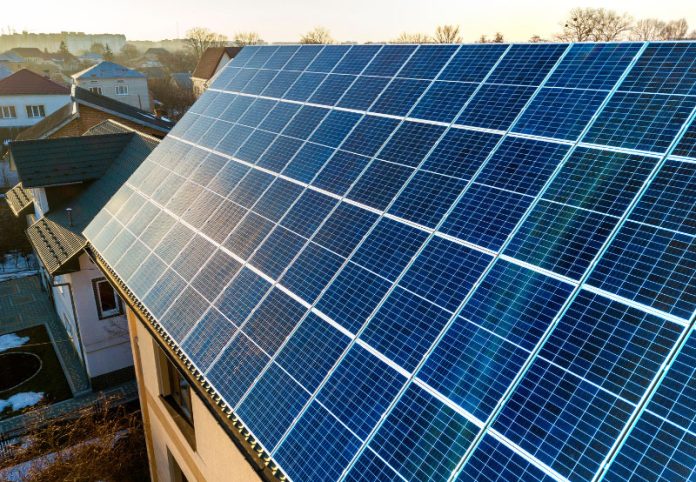Irfan Tramboo
SRINAGAR, Dec 8: Under the ‘Pradhan Mantri Surya Ghar Muft Bijli Yojana’, nearly 300 rooftop solar installations have been completed in Kashmir to date, bringing the total solar power generation capacity to 1.2 megawatts within just two months.
Highlighting the growing trend of installing domestic solar rooftops, KPDCL officials told Excelsior that in three months since the scheme’s implementation in Kashmir, they aim to increase the generation capacity to 3 megawatts.
As per the data, a total of 290 installations have been completed, with a combined power generation capacity of 1.173 megawatts.
“The trend is gaining momentum, the installation rate is increasing, and more people are opting for renewable energy,” officials noted.
In terms of progress, officials reported that 316 vendors have been empanelled, 7957 registrations have been completed, and over 4200 applications have been submitted so far.
While the scheme is open to religious places, officials informed that for a 3-kilowatt solar power plant, the Central Government provides a subsidy of Rs 84,000, while the Union Territory contributes an additional Rs 9,000.
Similarly, for a 2-kilowatt plant, the central subsidy is Rs 66,000, with Rs 6,000 from the Union Territory. For a 1-kilowatt plant, Rs 33,000 is provided by the center, and Rs 3,000 by the Union Territory.
“For solar power plants above 3 kilowatts, the subsidy remains the same as that for a 3-kilowatt plant,” officials explained.
Officials further highlighted the cost-effectiveness of the scheme, stating, “Generating 3 megawatts of electricity using a hydropower project would cost around Rs 35 crores, excluding additional maintenance and monitoring expenses. Such costs are not a factor under the PM Surya Ghar Scheme.”
Additionally, consumers have selected a total of 1657 vendors, while 253 inspections have been approved by KPDCL authorities.
“As of now, 253 projects have been commissioned, 35 inspections are pending, one has been sent for correction, and one has been rejected,” officials stated.
Regarding the subsidy, officials reported that payments have been made to 149 consumers whose solar power plants have been commissioned, totaling over Rs 1.27 crore.
“Another 249 consumers have had their subsidies redeemed. Within 15 days of commissioning a plant, the subsidy component is credited to their accounts,” officials explained.
Addressing prevailing misconceptions, officials clarified that the solar panels function efficiently and are well-suited to the temperatures in Kashmir.
It is noteworthy that the scheme was launched by Prime Minister Narendra Modi in January this year with the aim of promoting solar energy adoption nationwide.
With a vision to illuminate 1 crore homes using solar power, the scheme is pivotal in India’s journey toward energy self-sufficiency and achieving its ambitious net-zero target.
One of the key benefits of the scheme, according to officials, is the reduction in electricity bills, especially for low-income households.
The scheme allows families to save up to 300 units, significantly lowering or even eliminating their electricity bills.
“By reducing electricity expenses, the scheme provides financial relief to families, enabling them to allocate their income toward other essential needs,” officials added.


